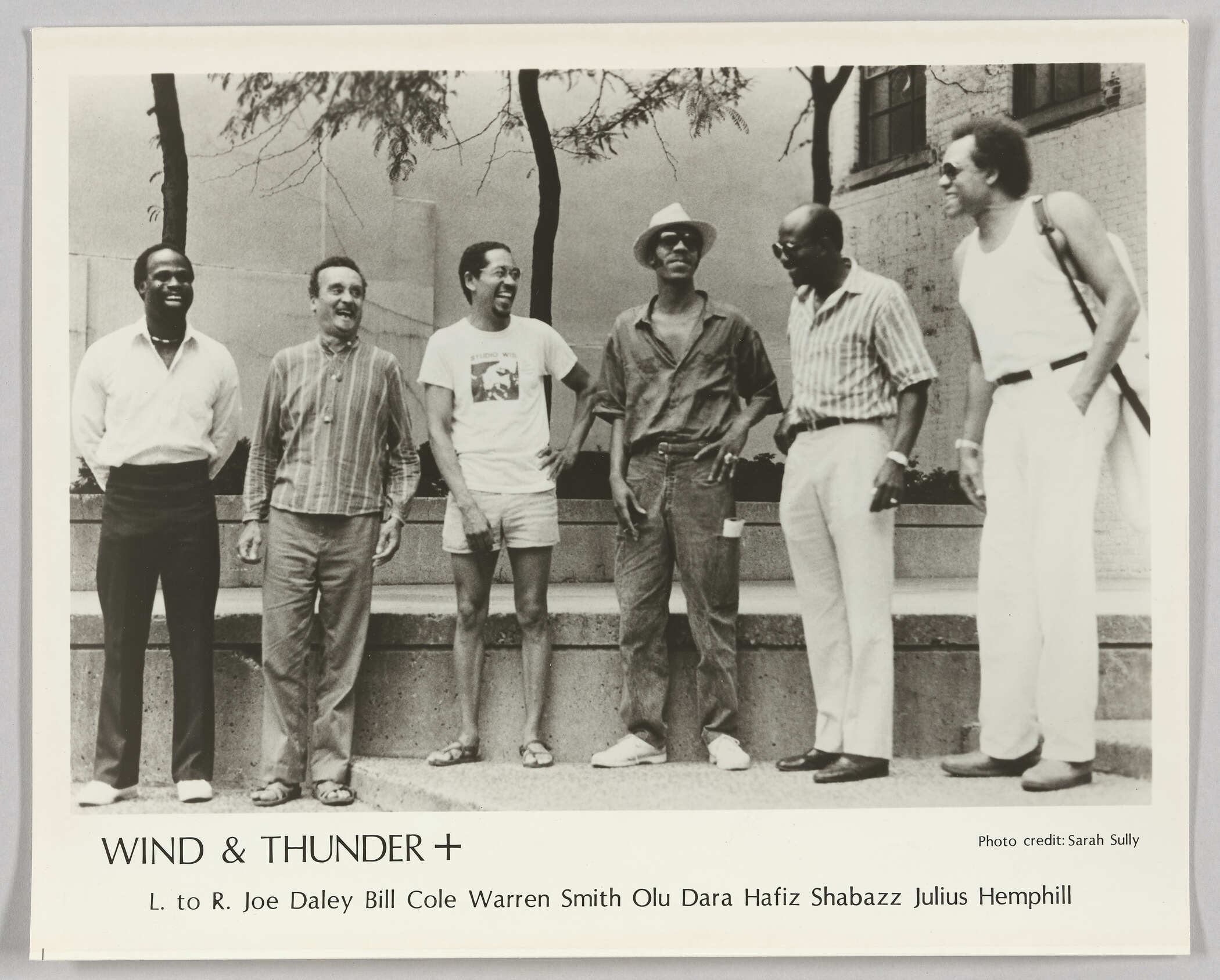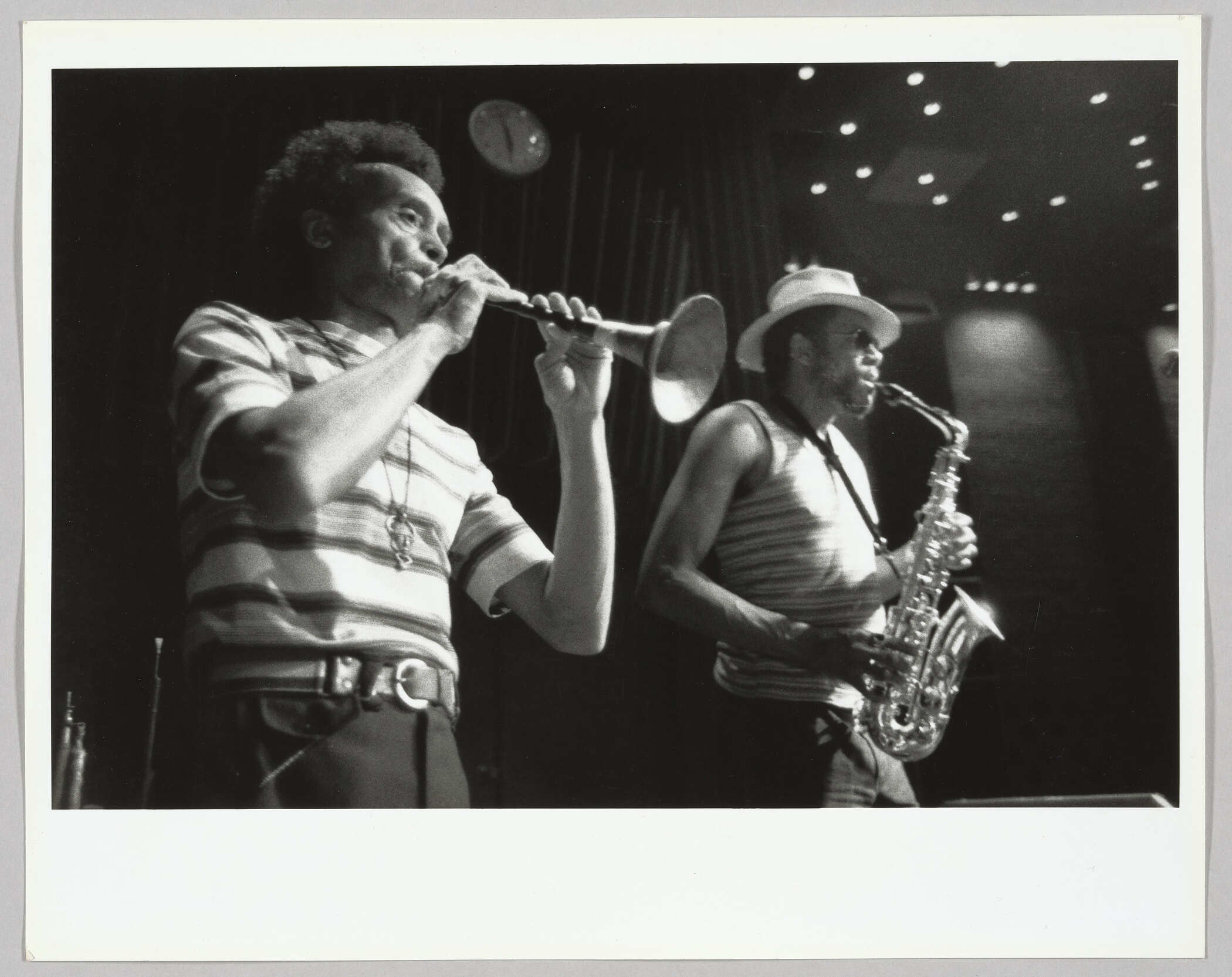Bill Cole
In 1974, the Dartmouth Music Department hired Bill Cole for a position in ethnomusicology – Cole was the first African-American to join the tenure-track faculty, and later became the first Black chair of the department. The author of highly regarded biographies on Miles Davis and John Coltrane as well as a pioneering improviser on non-Western double reed instruments like the suona, the shehnai and the nagaswaram, Cole’s arrival ushered in an era of unprecedented activity around Black Creative Music in the Upper Valley. Artists like Sam Rivers, Julius Hemphill, Abdul Wadud, Warren Smith, Joseph Daley, Jayne Cortez, and Archie Shepp became frequent visitors. Ghanaian master drummer Abraham Adzenyah began teaching a West African drumming ensemble (which later evolved into the World Music Percussion Ensemble under the leadership of Hafiz Shabazz). Bill created his own group with Hafiz, called Wind and Thunder, which also toured the country. During his time as chair, Cole also established a track for students who wanted to major in music other than Western classical, so their focus could be on oral traditions, ethnomusicology, improvisation, or folk music, among other possibilities. Bill's influence extended to the broader region as well during a three-year stint hosting the nightly jazz program for Vermont Public Radio, Monday through Friday, from 10pm to midnight.
Perhaps Bill's most significant accomplishment was the production of a seven concert series called the Cycles, performed over seven years from 1975 to 1982, as a part of his John Coltrane Memorial World Music Series. Cole developed these major works based on the philosophy of the Igbo of Nigeria, taught to him by Chief Fela Sowande, which holds that the human soul reincarnates seven times. Each of the “Seven Cycles” increased in length and size with as many as 40 musicians, drumming ensembles and Gospel choirs, in the later cycles. Interestingly, in a series that carried Coltrane’s name, Bill organized programming that featured Indian Classical Music alongside Cameroonian guitar and free jazz. Cole believed that John Coltrane, through his identification of his music as a form of folk music from the African diaspora, “paid tribute to that universal essence” found in other folk musics around the world, like in Asia and Africa. Listen to the First Cycle below, which features Bill Cole (Indian shehnai and vocals), Sam Rivers (tenor saxophone & piano), and Warren Smith (drums, kettle drums, marimba & percussion) (Dartmouth sign-in required):
Unfortunately, Bill’s popularity as a teacher and radically inclusive approach to pedagogy attracted the unwanted attention of the Dartmouth Review – a notoriously arch-conservative student newspaper well-funded by outside figures like William Buckley to promote right wing ideology on college campuses. The Review began an unrelenting series of articles, often shockingly explicit in their racism, attacking Cole and his teaching as an exemplar of all the supposed ills of multiculturalism, with Review students even invading and interrupting his lectures. A series of lawsuits and countersuits between Cole and the Review from 1983 and 1989 generated massive media attention from 60 Minutes, PBS Frontline, and the New York Times. Disheartened by the lack of support from the Dartmouth administration, and exhausted by the media coverage and the personal attacks (which included anonymous threats to his life and family), Cole negotiated his departure from the college and left in 1990.
For more details of Cole’s time at Dartmouth see also interviews with Fred Ho (Afro Asia: Revolutionary Political and Cultural Connections between African Americans and Asian Americans, Duke University Press 2008) and William Parker (Conversations II: Dialogues and Monologues, RogueArt 2015).


